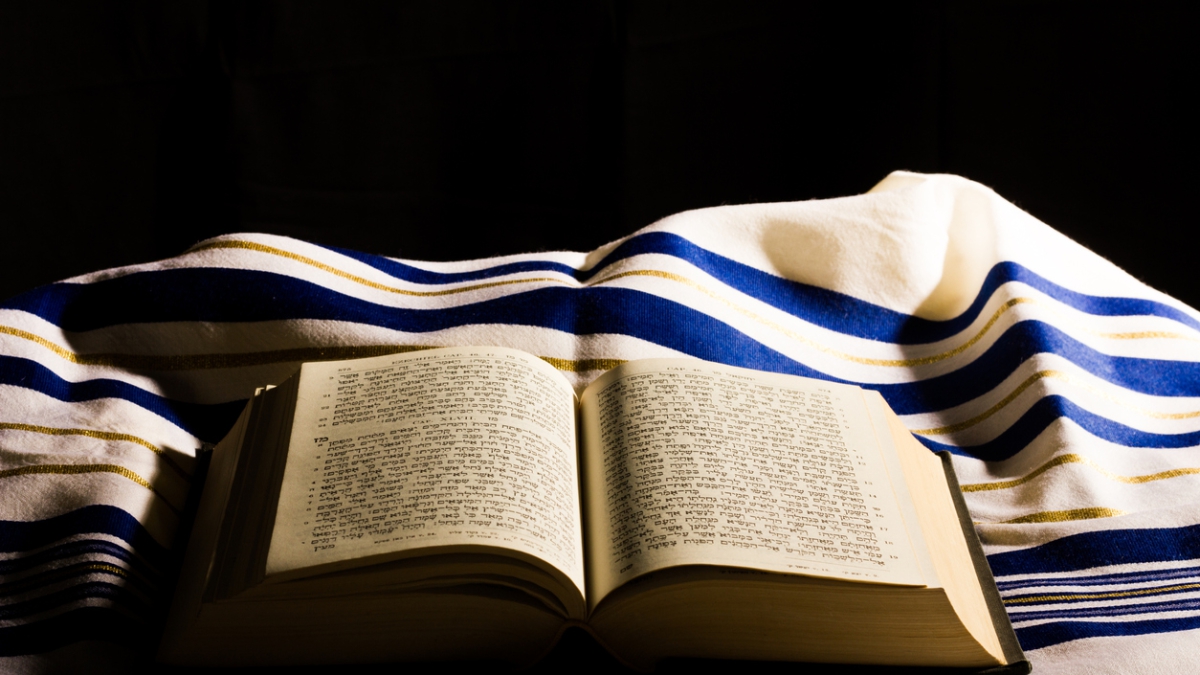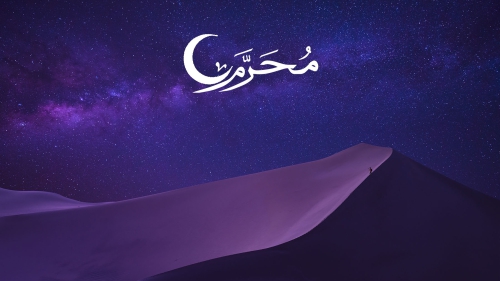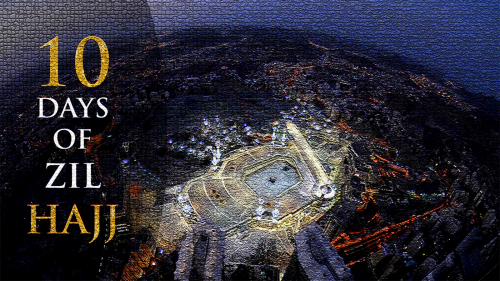Record of Deeds Book Of Life

Rosh HaShanah, the Jewish New Year Day began this year on the evening of September 29 and ended before sunset on September 30. It ushers in a ten day period of seeking self-improvement by doing a self-judgement review of our deeds in the past year; and making specific commitments to doing better in the new year.
This annual self-audit prepares us for the ultimate review by the Divine judge. Muslims will recognize this important religious theme of accountability. There are hundreds of verses in the Qur’an about Judgment Day; in total almost one fifth of the verses in the Qur’an are about Judgement Day issues.
Some verses give good news of resurrection and reward; and some verses are threats of punishment. “And beware of a day in which you will be brought back to Allah. Then every soul shall be recompensed fully for what it has earned, and they will not be wronged. (2:281)
On the Day of Judgment, every individual soul will be resurrected to account for his or her life. As the Quran states, “On that Day, people will come forward in separate groups to be shown their deeds: whoever has done an atom’s weight of good will see it, and whoever has done an atom’s weight of evil will see that” (99:6-8)
And “We shall set up just scales on the Day of Resurrection, and no soul will be wronged in the least. Even if it be the weight of a mustard seed, We shall produce it and We suffice as reckoners.” (21:47)
One unique Islamic teaching that is not found in the Torah, the Gospels, or in the later teachings of the church or the synagogue, but is often found in the Qur’an; is that in the afterlife of Judgement Day, we all will finally learn who was right about various religious differences.
“The Jews say, ‘The Christians stand on nothing,’ and the Christians say, ‘The Jews stand on nothing,’ though they [both] follow the Book. So [also] said those who had no knowledge [the polytheists], similar [words] to what they [the Jews and the Christians] say. Allah will judge between them [all] on the Day of Resurrection concerning that about which they used to differ.” (2:113)
For example, “The Sabbath was only prescribed for those who differed about it (Jews say Saturday and Christians say Sunday). Your Lord will indeed judge between them on the Day of Resurrection concerning that about which they differ.” (16:124)
This amazing affirmation of religious humility, which tells us that no one in this world may judge other people’s monotheistic religion, is stated clearly in the Qur’an: “If Allah had so willed, He would have made you a single people, but (God's plan is) to test you in what He has given you: so compete in all virtues as in a race. The goal of you all is to (please) Allah who will show you on judgment day) the truth of the matters in which you dispute.” (5:48)
And (at the final judgement) the record [of deeds] will be placed [open], and you will see the criminals fearful of that within it, and they will say, "Oh, woe to us! What is this book that leaves nothing small or great except that it has enumerated it?" And they will find what they did present [before them]. And your Lord does injustice to no one. (18:49)
“With Him are the keys of the unseen; none knows them except Him. He knows what is on the land and in the sea. Not a leaf falls but that He knows it. And no grain is there within the darkness of the earth and no moist or dry [thing] but that it is [written] in a clear record. (6:59)
The record book image of all of one’s deeds referred to above however, is also found in the Biblical Prophet Malachi: “Then those who revered the Lord spoke with one another. The Lord took note and listened, and a book of remembrance was written before each one of those who revered the Lord and thought about His name.” (3:16)
This Remembrance Book of Life is a frequent image in the Jewish synagogue tradition, especially near Rosh HaShanah: “May your name be inscribed in the Book of Life” is a common greeting during the ten-day Jewish New Year to Day of Atonement season.
From the time of Moses onward, the roll call of the redeemed has been closely linked with atonement (reconciliation with other humans and with God). The Record Book of Life’s Deeds is fixed and shown to every person when his or her life is judged in the hereafter. But while we are still alive we can change what is written in the Record Book of Life’s Deeds.
While the Book of Life records mankind’s deeds: “Know what is above you—a seeing eye and a hearing ear, and your deeds written in a book.” (Avot 2.1) the Sayings of the Fathers also compares life to a store with an open ledger of credit and debit.
One of the most popular interpretations of the Jewish rabbinic view of judgment and forgiveness is found in Talmud Rosh Hashanah 16b: “Three books are opened on Rosh Hashanah: one for the wholly righteous, one for the wholly wicked, and (the biggest) one for the intermediates.
The wholly righteous are at once inscribed in the Book of Life; the wholly wicked are at once inscribed in the book of death; and the intermediates are examined from Rosh Hashanah until Yom Kippur. If they are found worthy, they are inscribed for another year of life; if unworthy, they are inscribed for death in the coming year.”
Jewish prayers also mention the Sefer Hayyim: the Book of Life’s Deeds; with a prayer said daily from Rosh Hashanah, the New Year until Yom Kippur, the Day of Atonement. It reads: “Remember us unto life, O King who delights in life, and inscribe us in the Book of Life, for Your own sake, O God of life.”
Another prayer, U-Netanneh Tokef, a most poignant and stirring liturgical piece, describes what the Day of Judgment will be like: “Let us declare the mighty holiness of the day, for it is solemn and awesome.” The prayer acknowledges, “True it is that you judge and give reproof, discern and witness, record and seal, recount and measure.”
The prayer then concludes with three ways to positively influence the judgment. Teshuvah is one. Usually translated “repentance,” it means changing one’s behavior, or reversing course i.e. “returning.” One is not to become a reborn person, but to return to the “goodness” inherent in every human soul, according to [both Islamic and] Jewish understanding.
Tefillah is the second way to making things right. Usually translated as “prayer” it connotes “re-attaching oneself” to God.
Tzedakah, the third route to atonement, comes from the Hebrew word meaning “justice,” and “charity.” Justice demands that every person, even the poor, give to others.
According to rabbinic thought, it is these three: Teshuvah, Tefillah and Tzedakah, that help one add a positive inscription in the Book of Life. In Talmud Hagigah 27a we read, “At the time when the Temple stood, the altar brought atonement for a person; now a person’s table brings atonement for him (through hospitality for poor guests).”
So, without Temple sacrifice for our sins, Jews can rely on acts of charity and good deeds to gain entries into God’s Book of Life.
Moses, when he pleaded with God after the children of Israel committed the sin of the golden calf, cried out: “Alas, this people has committed a great sin; they have made a god of gold for themselves. But now, if You will, forgive their sin; and if not, please blot me out from your book which You have written!” (Exodus 32:31–32.)
And God’s response to Moses’ plea for the children of Israel was “Whoever has sinned against Me, I will blot out of My book.” (Exodus 32:33) unless they change their way of life.
The Day of Atonement (Yom Kippur) is first mentioned in the book of Leviticus. It is a solemn day, accented by fasting and praying to God for forgiveness of the sins committed against other people and against Him.
For each person who repents and atones, God will inscribe those people into the Book of Life. With the Temple destroyed, the priesthood disbanded, and animal sacrifices ended, the rabbis taught that: “Repentance and works of charity are man’s intercessors before God’s throne.” (Talmud Shabbat 32a.)
And “Sincere repentance is equivalent to the rebuilding of the Temple, the restoration of the altar, and the offering of all sacrifices.” (Leviticus Rabba 7; Talmud Sanhedrin 43b.)
As the Quran states “And those who believe and do righteous deeds – We will surely remove from them their misdeeds, and will surely reward them according to the best of what they used to do” (29:7)
And "Indeed, Allah will not change the condition of a people until they change what is in themselves." (Quran 13:11)
Allen S. Maller is an ordained Reform Rabbi who retired in 2006 after 39 years as the Rabbi of Temple Akiba in Culver City, California. His web site is: www.rabbimaller.com. He blogs on the Times of Israel. Rabbi Maller has published 400+ articles in some two dozen different Christian, Jewish, and Muslim magazines and web sites. He is the author of two recent books: "Judaism and Islam as Synergistic Monotheisms' and "Which Religion Is Right For You? A 21st Century Kuzari”.
Topics: Day Of Judgement, Interfaith, Judaism, New Year, Rosh Hashanah, Yom Kippur
Views: 5136
Related Suggestions

















